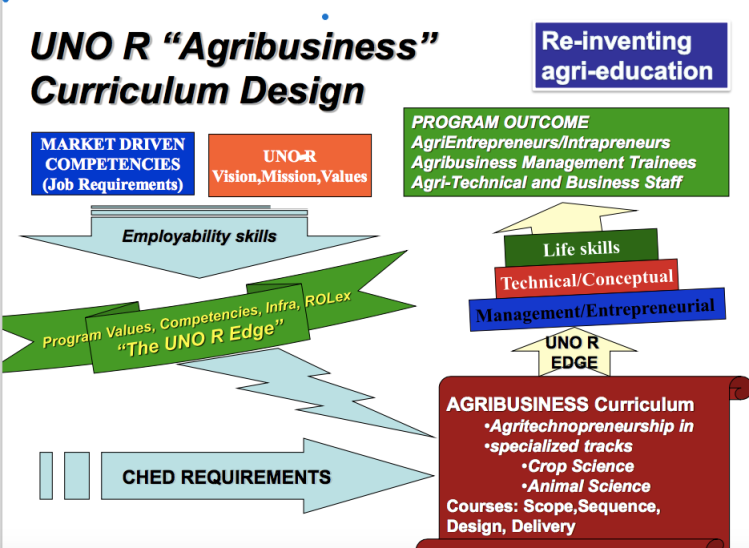*Speech prepared by Glenn N. Baticados, Director of the Center for Technology Transfer and Entrepreneurship at the University of the Philippines Los Banos and a Fellow of the Royal Academy of Engineering in London, UK.
Agriculture today is more than just a farmer simply planting a crop, growing livestock, or catching a fish. It takes an ecosystem and several actors to work together to produce and deliver the food we need. It is this dynamic and complex ecosystem that will equip agriculture to cope with the competing challenges of addressing food safety and food security, creating inclusive livelihoods, mitigating climate change and sustainably managing natural resources. Advances n agri-biotechnology and farming practices and methods have enabled farmers to become more productive, growing crops efficiently in areas most suitable for agriculture.
The future challenges facing agriculture will require a paradigm shift from a production orientation to a market-centric orientation. Sustainability of agriculture cannot be treated separately and independently. Agricultural sustainability involves the integration of the whole agri-value chain from the acquisition of inputs to farming to marketing and up recycling of agricultural wastes. It requires the integration of the whole value chain system from value creation, delivery, and capture. Thus, there should be a mindset shift from a traditional perspective of agriculture integrates all a market-centric agribusiness model.
AGRIBUSINESS integrates all the components of the agri-value chain system from inputs to end products. Agribusiness as an economic sector, has the greatest impact on the national income of the Philippines serving as an economic backbone of the country. Philippine statistics shows that focusing on agri-production alone will only yield to 9 to 11% GDP. But if we integrateagri-production with agri-manufacturing or agro-processing and agri-services, its impact on the Philippines GDP increases to 38 to 40%.
AGRIBUSINESS generates hundreds of thousands of jobs, produces major commodities for domestic and international consumptions. It brings rural progress by promoting economic activities in the countryside. And I believe, AGRIBUSINESS is the key to sustaining agricultural production and in the end, rural poverty alleviation.
As Phil Hogan, the European Commissioner for Agriculture and Rural Development said, “Innovation is not only driven by technological advances. It also through novel ways of organizing farmers and connecting them to the information they need. Many smallholder farmers around the world still farm the same way their ancestors did thousands of years ago. Traditional farming approaches may continue to work for some, but new practices can help many to substantially improve yields, soil quality, and natural capital as well as food and nutrition security. The farming community needs improved access to new technologies, new business models and new forms of cooperation.”
But promoting the mindset shift from agriculture to agribusiness means that the academe and the industry should work together and to innovate continuously. Both agents of change need to broaden and deepen their collaboration in education and research. Promoting innovation in agribusiness must start from the education of the youth towards agribusiness management employment and the promotion of inclusive agri-entrepreneurship. Such academe and industry partners will result in the creation of a comprehensive and innovative agri-value chain system that will not only assure the supply of inputs and goods but as well as human capital with relevant industry competencies.
UNO-R recently embarked on a project towards the development of an “INDUSTRY DESIGNED, PARTNERSHIP DRIVEN, AND EMPLOYMENT READY AGRIBUSINESS PROGRAM”. An innovative agribusiness curriculum that will produce agribusiness graduates that have relevant agribusiness industry competencies, essential life skills, and imbued with the SIMPLE values of a true Recoletos. The envisioned agribusiness graduates will become masters of technology, industry-ready, and will become global citizens. The curriculum methodology will include immersive learning programs, learner-centered approaches, flip classroom teaching models, and an innovative online learning and collaboration platform developed under the Rolex project funded by CHED.
Lastly, UNO-R is positioned to become a leader of the innovation of agribusiness. I urge everyone to support our first batch of agribusiness managers, innovators, and entrepreneurs. Let this innovative and immersive agribusiness program be a catalyst of change to come as we renew a generational interest on sustainable agriculture and developed young, highly-trained, and technology-driven agribusiness men and women.
#Agribusinessisthegamechanger






